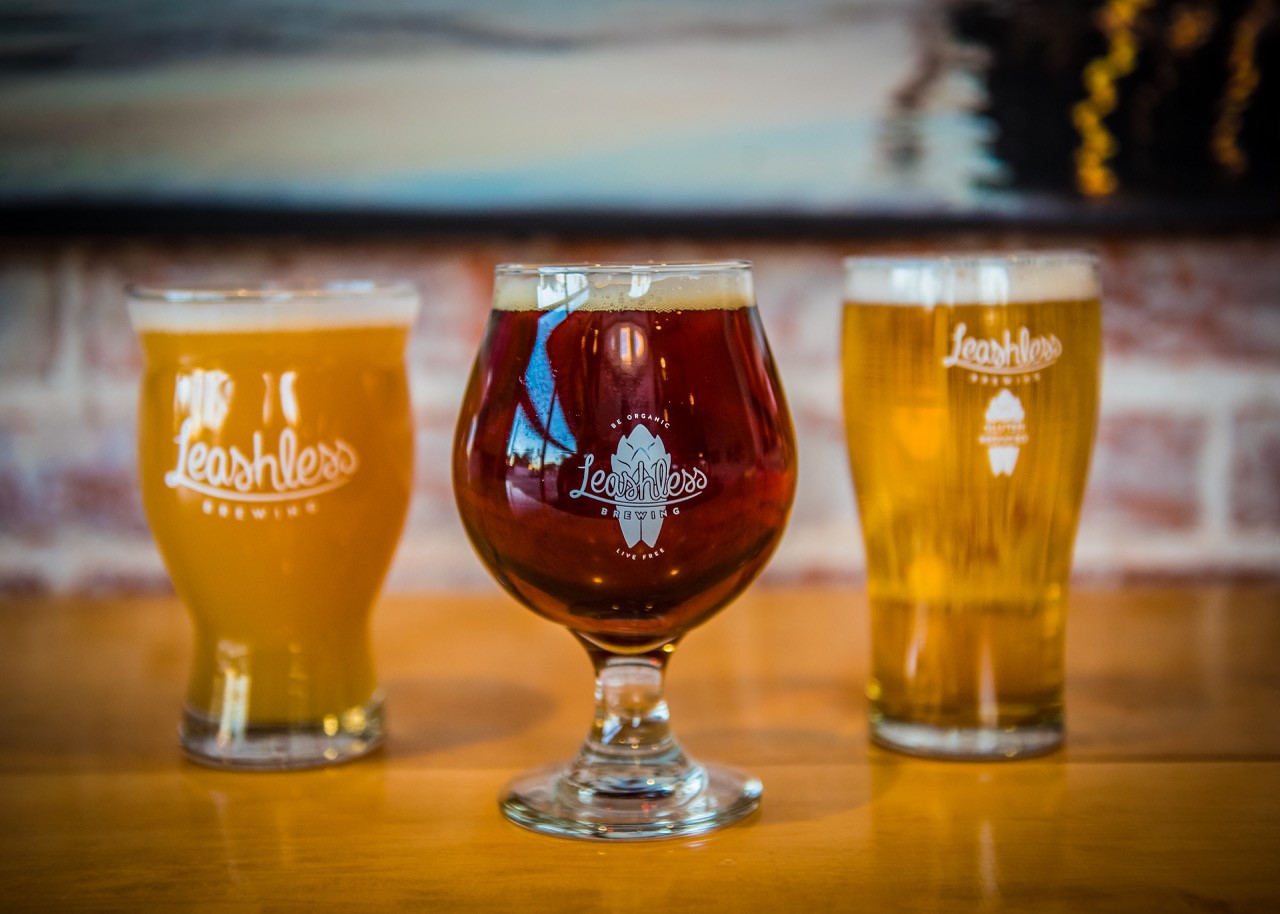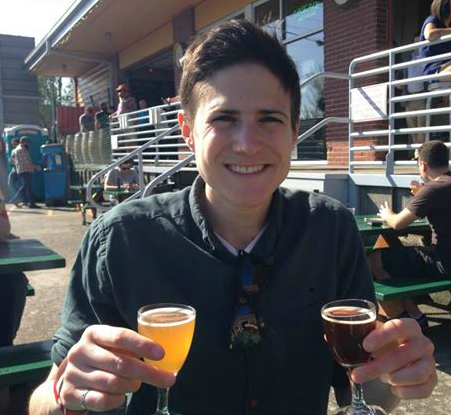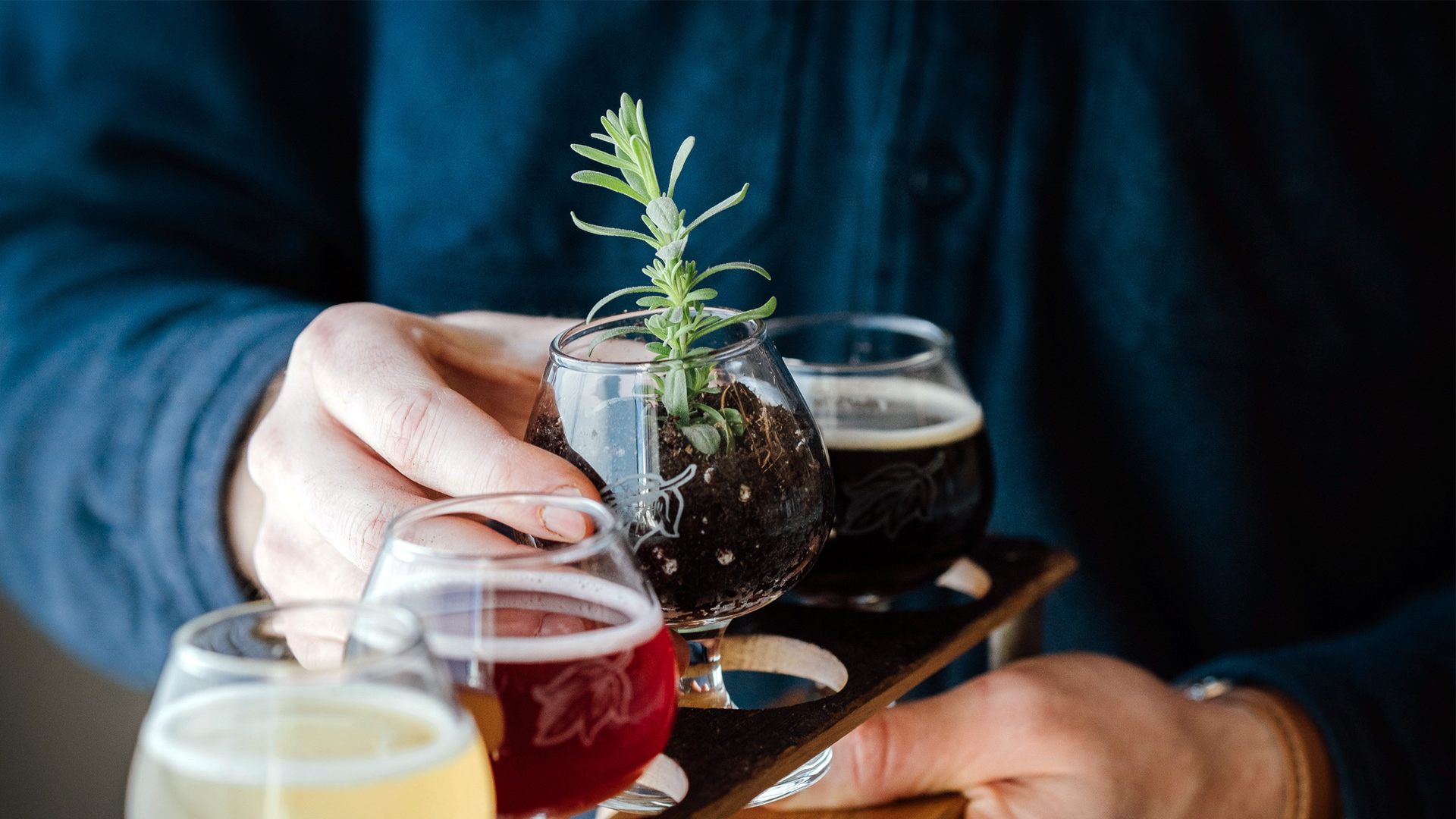Shop
A Pint with Leashless Brewing: How One Brewery is Revolutionizing Organic Craft Beer
From Ocean to Organic.
This is a paid, sponsored post presented by Leashless Brewing.
For most people, their love of beer starts on land. Maybe in a crowded bar or an intimate taproom. For John Gonzales, Founder of organic craft brewery Leashless Brewing in Ventura, California, his passion started in the ocean.
Gonzales’ connection with the deep blue sea and consequently the environment eventually led him to open up a certified organic brewery, one of less somewhere around 40 in the entire country.
While organic craft beer likely won’t be topping any lists of the top trends in 2021, its positive impact on our planet has slowly been turning heads within the craft beer community since the early 2000s. According to the Organic Trade Organization, an association supporting organic agriculture and products in North America, U.S. organic beer sales increased more than tenfold since 2003, from $9 million to $92 million in 2014, and 3.4 percent between 2017 and 2019.
At a time when we’ve seen beer used as a powerful vehicle for change, fueling causes such as the fight against racial injustice or recognizing the achievements of women in craft beer, Gonzales’ own quest to create more awareness around sustainability through his beer seems fitting.
Of course, it doesn’t hurt that Gonzales’ beer tastes just as good as any of the major players around California.
So, why haven’t you heard more about organic brewing? It could be because words like “organic” aren’t as sexy as dank or hazy or coconut imperial stout. Maybe, it’s because people simply don’t understand the definition of organic beer.
But the impact that organic breweries have on our planet is undeniable. Imagine that you can reduce your water and carbon waste just by drinking one of Leashless’ beers, essentially improving the planet with just one glass of beer. Would you want to try one?
Don’t worry, he’s done all the hard work for you. And yes, it is very hard work to become a certified organic brewery.
It’s Gonzales’ unique and rigorous journey (on both land and water) to open Leashless, along with his one hundred percent commitment to protecting the environment through his own brewery, that prove the power of craft beer as a vehicle for change.
We’re in a new year; it’s time to consider a new way to drink beer.
The Story Behind Leashless Brewing
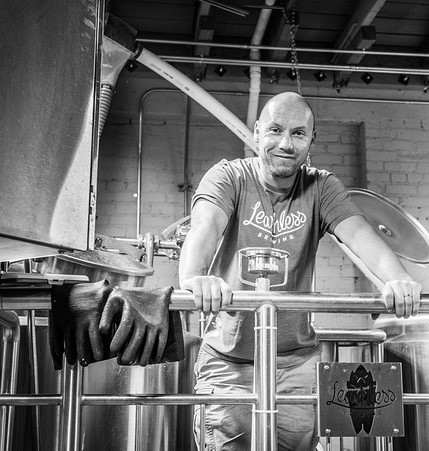
Growing up in Carpinteria, California a mile away from the beach, Gonzales spent most of his time hanging out with his feet in the sand and eventually scuba diving. At 16-years-old he was the youngest person around going out on diving boats.
As he grew older, his love of the water only continued to swell. In 1994 at the University of San Diego, Gonzales’ floormate bailed for freshman winter break, leaving behind his surfing gear. “I took the board and wetsuit and the next day surfed six-eight foot waves at Rincon. It was my second-day surfing, ever. I fell in love with surfing and the rest was history,” says Gonzales.
Somewhere between growing up at the beach, scuba diving, and surfing Gonzales adopted a way of life. He had a desire to live a clean healthy lifestyle, connected to the environment and ocean. “While surfing I’d be waiting for the next set and I’d feel the sun kiss my face sending shivers up my spine,” shares Gonzales. “I knew it was a sign that I was in the right place and time. That this is what I’m supposed to be doing.”
Gonzales carried that spine-tingling love throughout his twenties.
After graduating from the University of San Diego with a degree in Ocean Studies and a minor in Cultural Anthropology of the South Pacific, Gonzales headed to graduate school at the Rosenstiel School of Marine and Atmospheric Science at the University of Miami to study aquaculture and aquaponics, the science of using fish waste to raise plants hydroponically to create sustainable marine ecosystems.
Gonzales’ studies took him all over the world, researching and implementing environmentally-friendly practices in St. Croix, Panama, Costa Rica, and Nicaragua. In 2006 while working towards a NASA-funded Masters in Fish Nutrition at Purdue University, Gonazlaes joined the University of Hawaii Sea Grant College Program as a Junior Extension Agent. Assigned to the U.S. Territory of American Samoa in the South Pacific, he helped promote sustainable aquaculture and established a Marine Science program at American Samoa Community College.
In 2008 Gonzales fell in love and moved back to the mainland to get married. He ended up in Maryland where he found work as a contractor at the National Institute of Health. “I literally sold everything I owned to leave the South Pacific except for whatever I could pack in one bag, my surfboards, and two boxes of books,” explains Gonzales. “We were broke as a joke. We couldn’t even buy beer unless it was a special occasion.”
Luckily for Gonzales, an IT guy on his floor at work introduced him to homebrewing.
You can probably imagine exactly what happens next.
Gonzales jumped down the rabbit hole, buying equipment, making beer, and hanging out with homebrewers. Gonzales became a Beer Steward and eventually won his own homebrewing awards.
Despite all this success, Gonzales hadn’t seriously thought about opening his own place until a chance encounter.
While at a bar in Ocean City, Maryland for his wife’s birthday Gonzales ran into Heavy Seas Sales Manager Joe Gold. “The next thing I know we’re talking, he’s buying me a round of beers, and I’m telling him that I’m thinking of starting a brewery,” said Gonzales. “I really for the life of me was not. It just came out of my mouth.” Call it a happy accident, but the next week Gonzales sat down with Gold and showed him a business plan.
The brewery idea? Well, naturally it reflected how Gonzales lived. “I’ve always strived to live a clean, environmentally-friendly lifestyle and I’d be happy if I could surf everyday….so planning this business had to be about that lifestyle, incorporating the values of sustainability and the surf lifestyle, and we had to make it organic. There was no other way,” says Gonzales. If Gonzales was going to go all on in starting his own brewery he was going to do it his way.
“If I failed, I had to be able to look myself in the mirror and say I gave it my best, that I didn’t cut any corners and just went balls in. So, if I failed then I failed. But I never wanted to lose my integrity or authenticity of who I am and what this business is all about,” says Gonzales.
In 2014 Gonzales took a leap of faith and moved back to southern California to begin his new adventure. He wanted to open Leashless Brewing Co. as a certified USDA organic brewery.
What is Organic Beer?
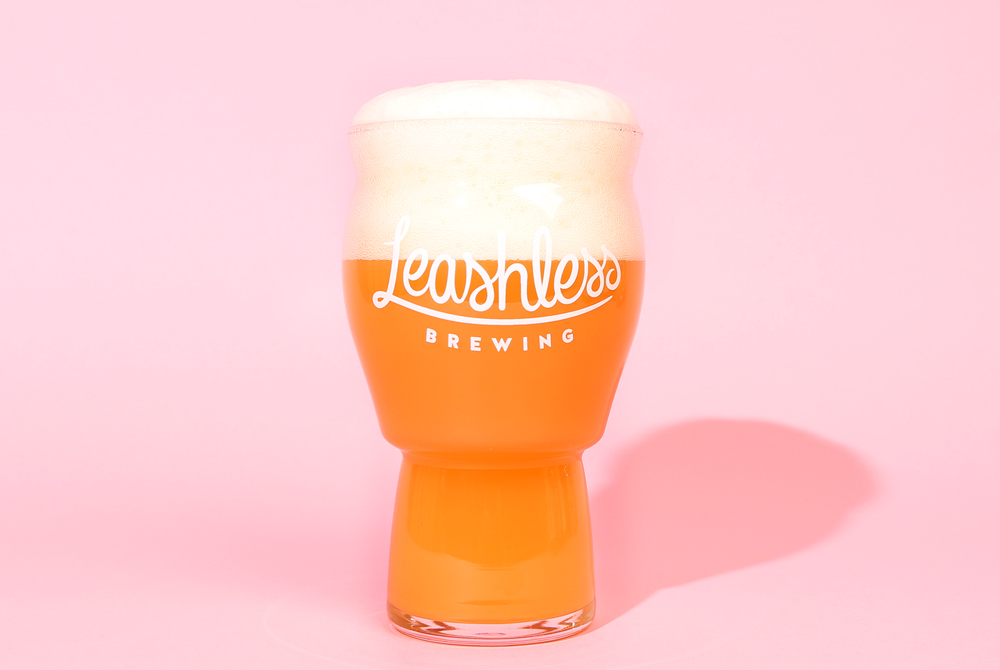
Leashless Brewing certainly wasn’t the first certified organic brewery in the country. The roots of the organic beer movement can actually be traced all the way back to the 1990s.
The first organic brewers followed on the coattails of the grunge movement, supporting an ethos of sustainability and care for the planet. As people became more conscious of the environment, breweries like Lakefront Brewing Co. in Milwaukee, Wisconsin and Eel River Brewing Co. in Fortuna, California, two of the OG organic breweries, began using organic ingredients in their beer and added the word organic to their labels. It wasn’t until 2000 though that the U.S. Department of Agriculture (USDA) officially published guidelines for organic beer production under the National Organic Program (NOP).
By definition, at the simplest level, organic beer means the ingredients used to brew beer were grown without chemicals or pesticides. This means all malt, hops, yeast, flavorings, and adjuncts.
Within this broader framework breweries can apply for three different levels of certification:
“100% Organic” – the strictest designation requiring that all ingredients, including hops, be organic.
“Organic” – meaning that breweries must brew their beers with a minimum of 95 percent organic ingredients.
“Made with Organic” – denoting that a brewery used 70 percent organic ingredients in their beer.
But, brewing organically is anything but simple. To qualify as a certified organic brewery and to use any of these official terms on beer labels, branding, etc., requires a strict certification process.
How Does a Brewery Become Certified Organic?
Here’s where it starts to get a little complicated. The USDA sets all of the guidelines for organic production, but relies on individual states to implement the certification program. For large states like California, where Gonzales decided to open Leashless, the amount of agriculture is so vast that the state then relies on third parties to certify businesses on behalf of the state.
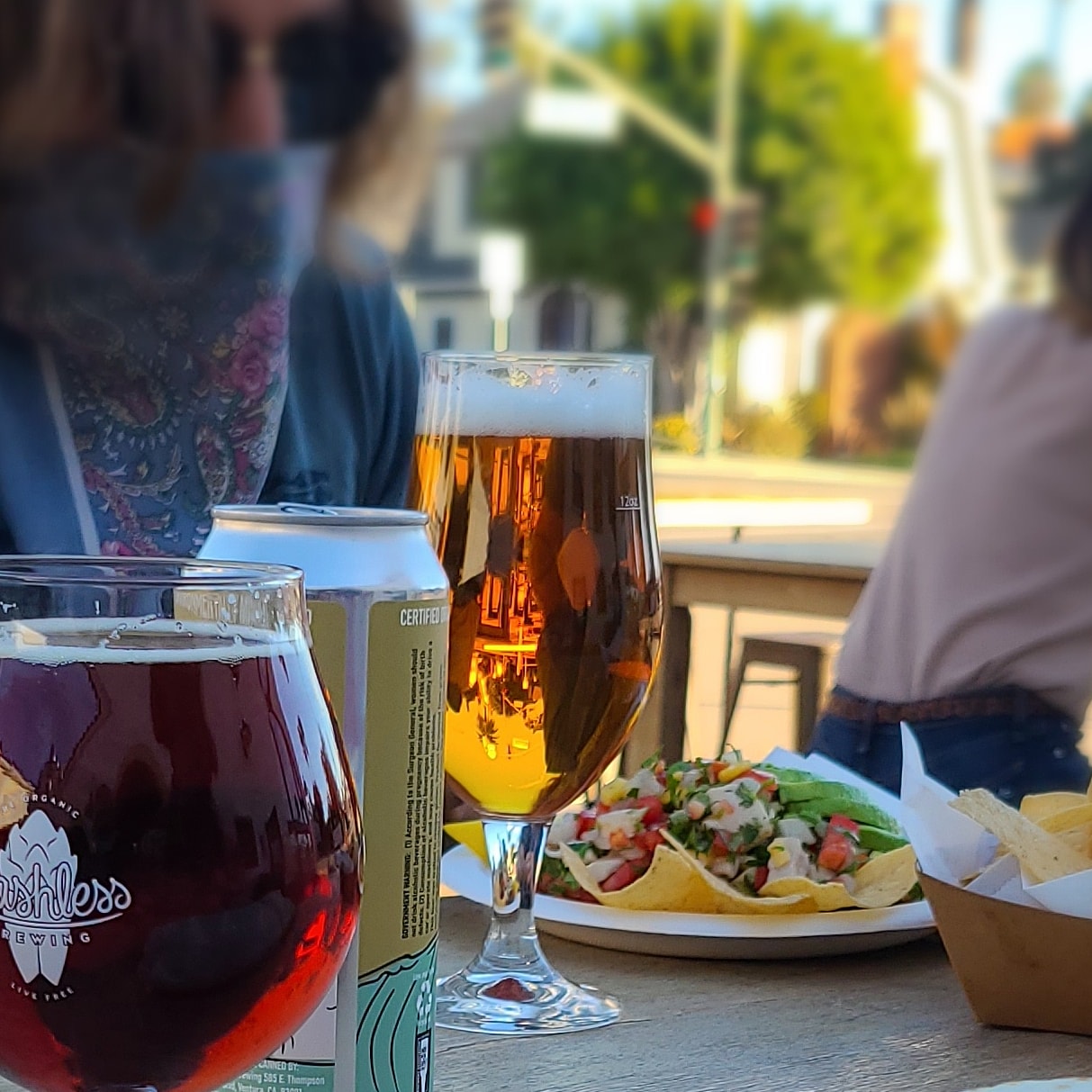
With that in mind, the state relies on third parties such as the California Certified Organic Farmers (CCOF) and Organic Certifiers to help implement the audit process. These auditors go in and use the standards of the NOP to assess if a brewery is in compliance with the organic specification. If a brewery passes inspection this third party organization tells the state, which in turn runs the certification up the pipeline to the federal program. In California specifically, beer is considered food, meaning when a brewer files to become a certified organic brewery they first need to apply to the California Department of Public Health to become what’s called a Certified Food Processor and then they need to apply again to become a Certified Organic Food Processor.
It’s easy to see how the process quickly becomes convoluted. On top of all the paperwork and audits required there’s the fees to consider too. A standard organic certification fee from a third-party organization like CCOF can cost around $325 per application.
To complicate matters even further the procedures never really end. Even after receiving official recognized organic certification status from the USDA, breweries can face a surprise audit at any time. If an auditor visits, a certified organic brewery must produce documentation proving the specified number of products going into their beer are in fact organic, meaning brewers like Gonzales will need to share his beer recipes showing the origin of every ingredient he’s using.
“We actually have an auditor that works two blocks away [from the brewery]. He can walk over unannounced anytime,” explains Gonzales.
Beyond the laborious certification process, Gonzales notes several other specific challenges to maintain his certified organic certification.
What are the Challenges with Organic Brewing?
Although from an outsider perspective brewing, organically may seem simple, it is anything but. Challenges arise at all levels including the convoluted certification process, scarcity, and high cost of ingredients, and that’s just the start.
Brewing with certified organic ingredients means that Gonzales has a smaller pool of suppliers to work with.
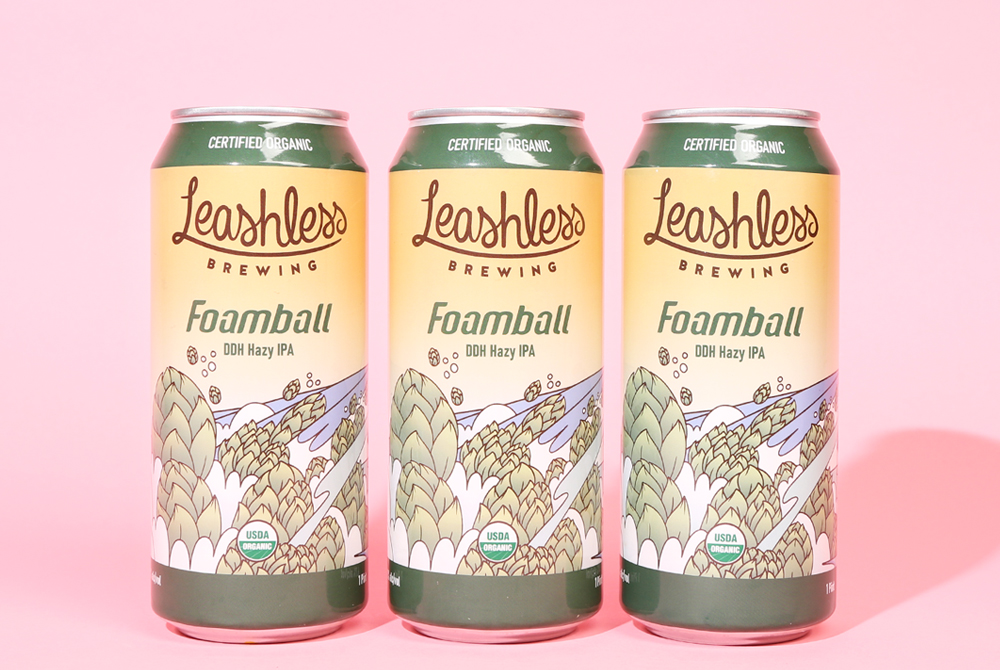
According to the USDA in 2016 (the most recent study available) farmers harvested 50,857 acres of hops in the U.S. and of those only an estimated 674 acres (just 37 farms) were organic, meaning less than .01 percent of American farmland is used for organic hops. According to Bart Watson, Chief Economist at the Brewers Association, an organization working to promote and protect small and independent American brewers, hops are more susceptible to specific diseases, which can most easily be avoided with chemical treatments.
In fact, when the USDA first wrote the guidelines for organic production they left organic hops out of the qualification process altogether. There simply weren’t enough available. It wasn’t until 2013 that The National Organics Standards Board (NOSB) required that all beers labeled organic also contain organic hops.
Similarly, in 2016, only 51,254 of 2,565,000 harvested acres of barley were organic, amounting to only .02 percent of all barley crops according to the USDA.
And yeast? Well, Gonzales says there is only one provider of organic yeast in the country, Imperial Organic Yeast.
All this means that if Gonzales is short just one bag of grain he can’t simply go down the street to his friends at another brewery and ask to borrow some. He needs to reorder from one of only a handful of the right suppliers.
Additionally, because of the scarcity of ingredients, the price of organic hops, malt, and yeast is also higher. For smaller craft brewers, Gonzales estimates that he pays two to three times more for organic hops and sometimes up to 35 percent more for organic grains. And, the high cost of ingredients trickles down into Gonzales’ bottom line, forcing him to sell his beer at a higher price point. In turn, his beer can be harder to sell to the consumer and move off the shelf. Such is the life of organic breweries.
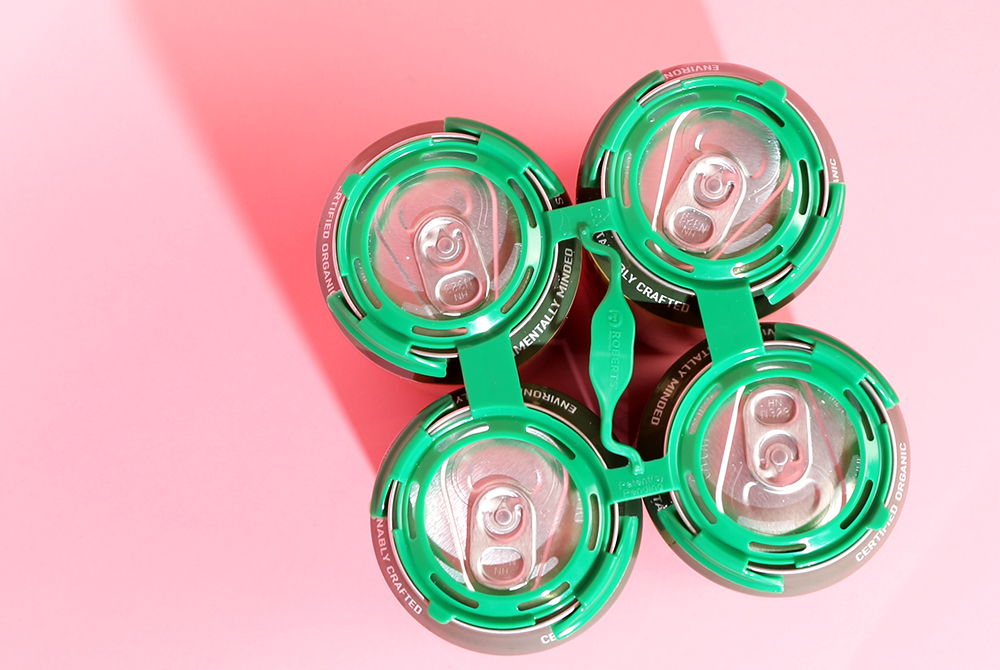
Despite the tedious certification processes and higher costs, ultimately Gonzales actually sees these strict standards as a positive. “There is no denying the accountability and legitimacy of the USDA organic logo,” shares Gonzales. “I can appreciate the challenges with organic certification because it demonstrates accountability. I hold myself accountable for my actions.”
When Gonzales first started Leashless he made a decision to stay true to his roots and to his beliefs to help the environment. By following all of these rigorous standards Gonzales proves his dedication to his craft.
Why Brew Organic Beer?
Let’s review. Brewing organically is more expensive, the ingredients are harder to find, and it’s more laborious. Which begs the million-dollar question: Why brew organically? Why add more costs and headaches to an already demanding business if you don’t need to?
To Gonzales the choice is easy. Brewing organically is not just a statement, but also a decision to create tangible change for the environment.
As a long-time surfer and lover of the ocean, Gonzales’ commitment on land is clear. “We’re trying to use beer as a vehicle to open peoples’ consciousness to make decisions around the environment on a basic fundamental level,” says Gonzales. According to the Rodale Institute, organic agriculture uses up to 30 percent less water and 40-45 percent less carbon. “If we want to take care of our home and our community we have to start on land. It’s insane how easily we could possibly shift the climate conversation.”
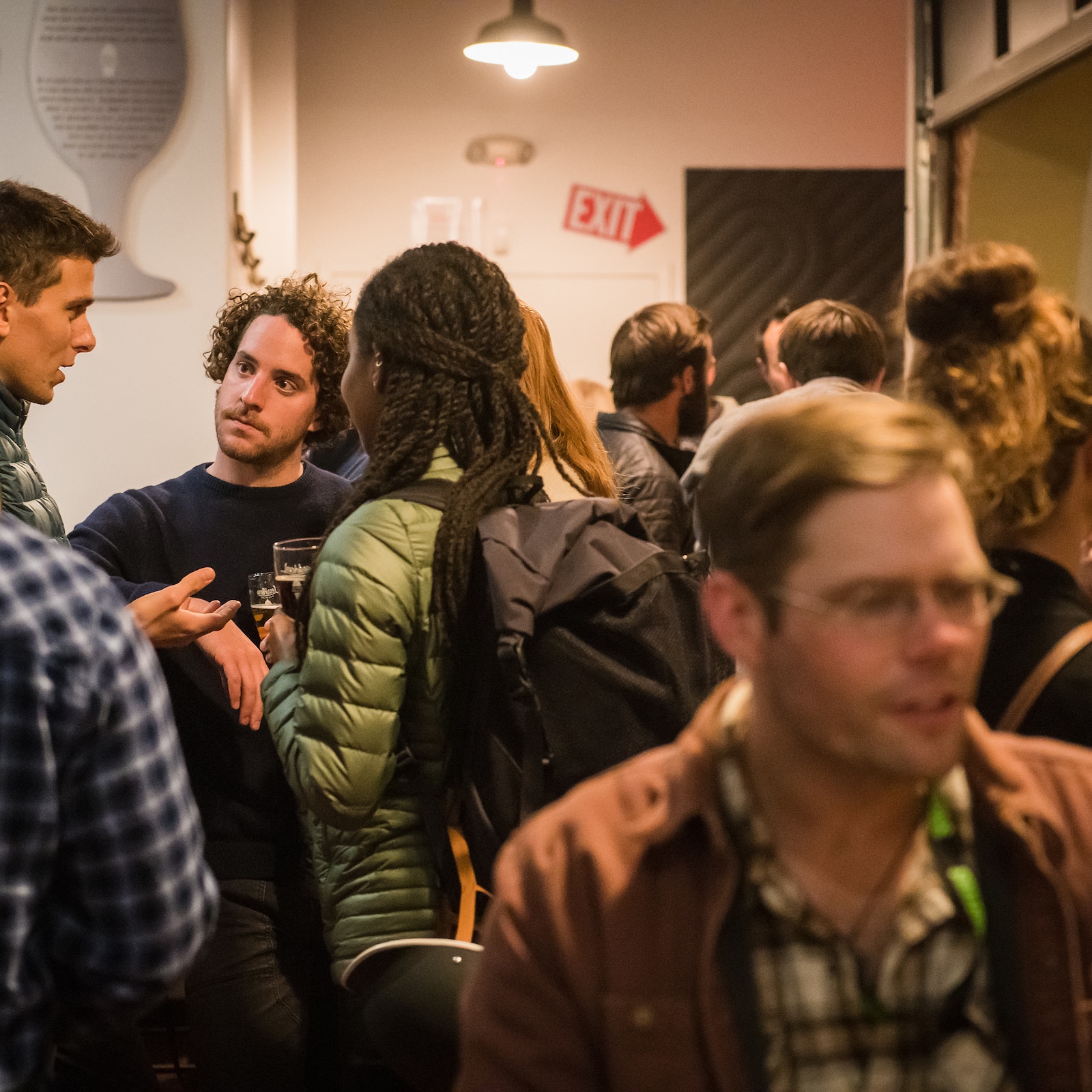
Gonzales carries his ethos through the brewery, making sure the taproom is styrofoam- and smoke-free. His basic principles often meant that inquiring food trucks wouldn’t call him back once they learned Leashless was Stryfrofoam-free. For those that do smoke in a designated area away from the taproom, Gonzales partnered with the Surfrider Foundation, an organization dedicated to the protection and enjoyment of the world’s beaches, to create cigarette butt recycling cans. Any butts put in the bins are collected once a month and recycled instead of ending up in the ocean.
From day one Leashless has used beer to be an environmental steward.
As if all of these accomplishments weren’t praise enough, Leashless has managed to hit the dynamic duo – not only is Gonzales adhering to strict organic standards that protect the environment, but he is also making some damn fine tasty organic beers.
Organic Beer Tastes Good
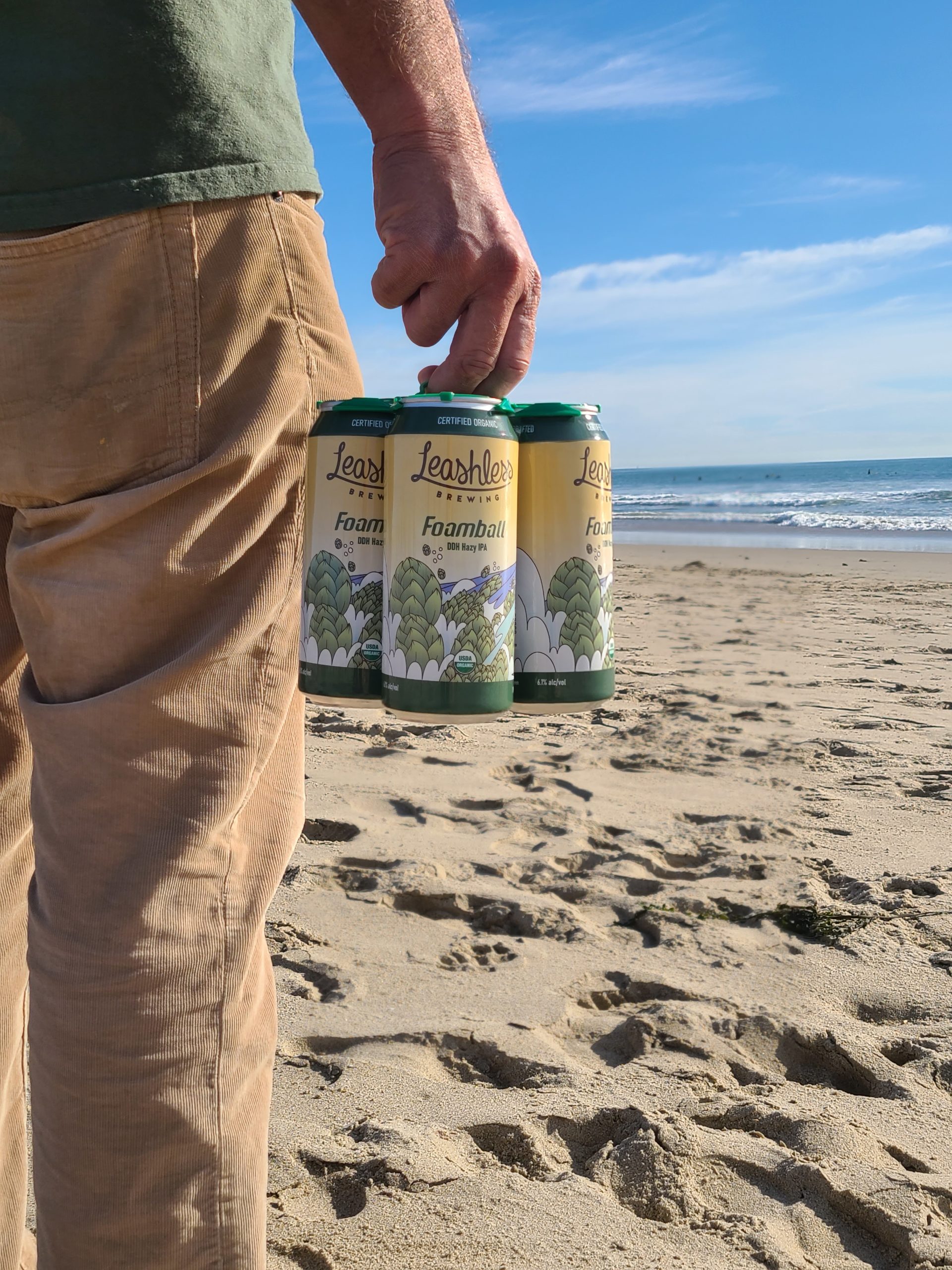
A perception exists in the beer community that organic beer tastes worse than conventional beer.
Let’s put that myth to rest right now. At least at Leashless that just isn’t true.
The time and dedication that Gonzales puts into his sustainable message can also be tasted in his beer. His tap list runs the gamut from an Island-style Belgian chocolate stout aged on coconut and cacao and Hidden Notes Belgian Dark Strong Ale to the F-Bomb Juicy Pale Ale and aforementioned Foamball Hazy IPA. Seems like using ingredients from organic farms hasn’t restricted Gonzales’ creativity.

We found Foamball to be a set of smooth waves of super juicy citrus from the organic El Dorado hops, cresting with high notes of mangos and reach. Some might say drinking Foamball was like riding that perfect spine-tingling swell at sunset in the Pacific Ocean.
The Bottom Line
For now, Gonzales will continue to spread his message to the craft beer community one glass of certified organic beer at a time.
“We’re using beer as a force for good,” says Gonzales. “If you’re going to drink you should have fun. Life is all about celebrating. Whether you had a killer week or a shitty week sitting at a bar, drinking a beer, talking to people, listening to music, but doing it all with organic beer in your hand, that’s the huge win.”
This is a paid, sponsored post presented by Leashless Brewing.
Liked this article? Sign up for our newsletter to get the best craft beer writing on the web delivered straight to your inbox.

